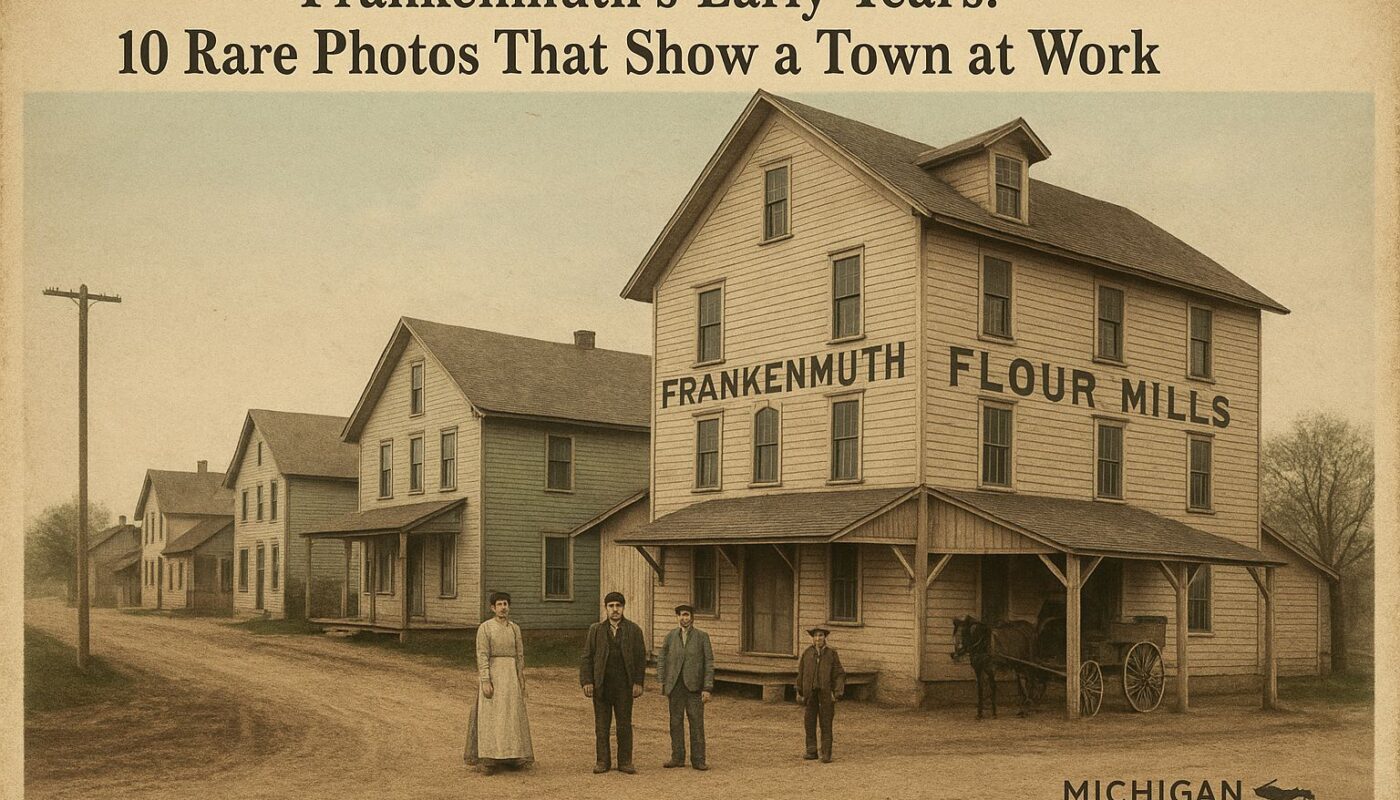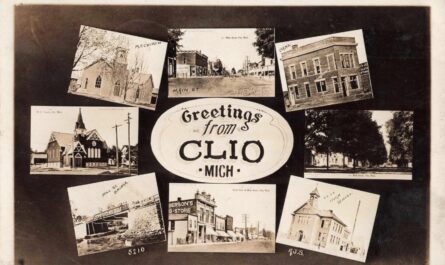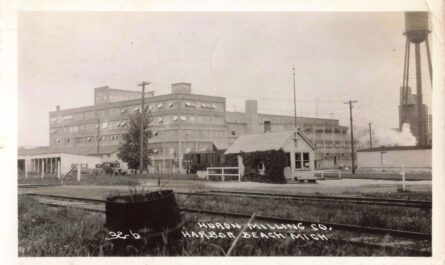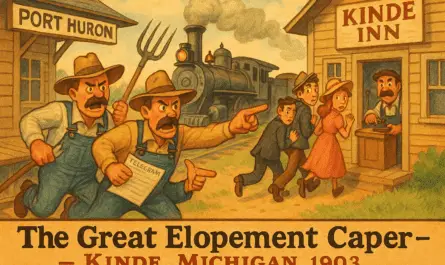This post uncovers the history of Frankenmuth Michigan and its early history through rare photographs showing daily life before it became a tourist icon. Hotels, mills, and Main Street businesses define a town that worked hard before it was famous.
Frankenmuth is known today for its festive charm, fried chicken dinners, and old-world flair—but that identity came later. Long before tourism shaped the town, Frankenmuth was a small, working-class settlement anchored by mills, modest hotels, and storefronts. These 10 rare photographs, taken between 1900 and 1940, give us a closer look at the daily life and businesses that built the town’s foundation.
Video – Frankenmuth’s Not-So-Fancy Days—Hotels, Hay, and Hard Work
Before it became a tourism hotspot, Frankenmuth, Michigan was a quiet town of mills, merchants, and modest hotels. This episode of Michigan Moments brings you rare photographs from 1900–1940 that reveal the working life of the people who built Frankenmuth from the ground up.
You’ll see the Henry Fischer Hotel, Rupprecht’s Meat Market, the Frankenmuth Brewing Co., and the original Zehnder Hotel—long before it became an icon. These images tell a different story—one of grit, trade, and everyday pride.
A Glimpse Down Main Street
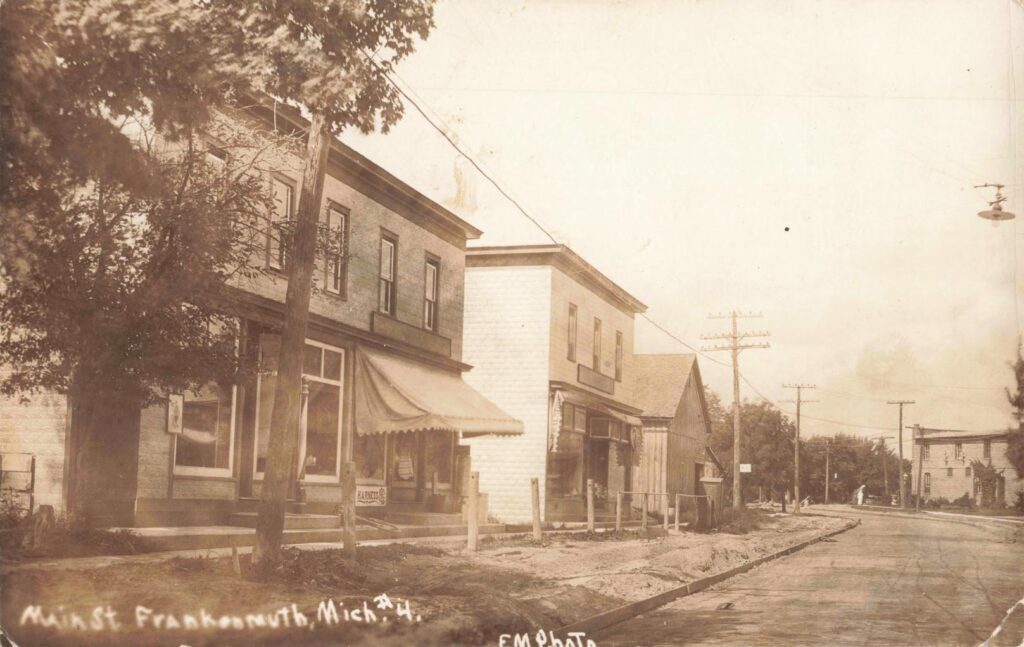
One image shows an unpaved Main Street where wooden posts line the sidewalk and utility poles lean under the weight of early electric wires. Businesses like the Haines store welcomed locals under striped awnings. It’s a quiet but industrious view of Frankenmuth before highways and neon signs arrived.
Where Travelers Stayed
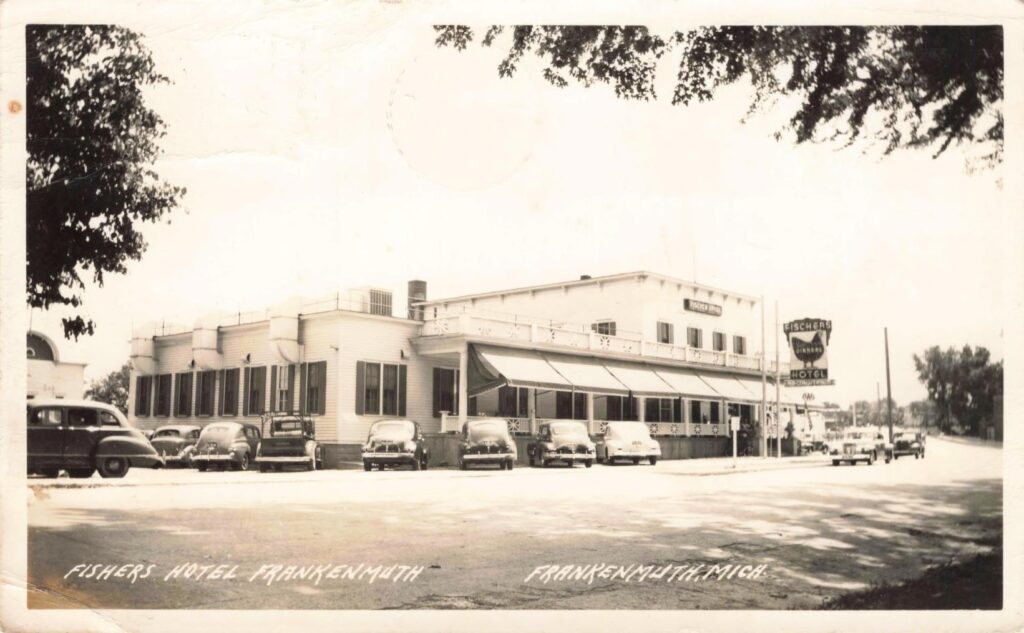
Frankenmuth’s early hotels were simple but central to the community. The Henry Fischer Hotel, operated by Rolly McNiven, served as both lodging and social hub. In the photo, visitors in postwar attire gather on the steps beneath signs advertising chicken, steak, and fish dinners.
The Hotel Frankenmuth stands in contrast—quieter and plainer, with a horse-drawn wagon parked out front. This was working-class hospitality, serving salesmen, farmers, and travelers needing a night’s rest rather than a grand experience.
A third hotel, the Hotel Goetz, features a wraparound porch with empty chairs—inviting guests to pause. These images remind us that local hotels were more than businesses. They were part of the town’s public life.
Frankenmuth’s General Stores
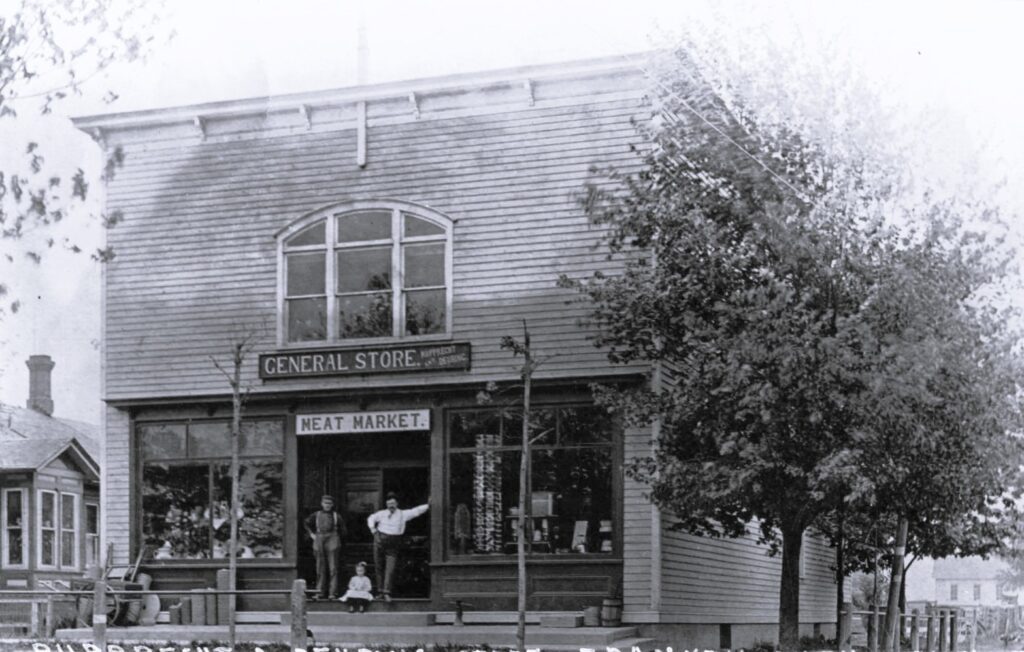
The heartbeat of any small town in early Michigan was its general store. Rupprecht & Neuring’s Meat Market and General Store appears in one image with three men posed outside—likely the store’s owners or regulars. Inside, goods would range from tobacco to tools to sewing needles. These stores weren’t just for shopping—they were the town’s informal meeting halls.
Another shopfront, labeled Ortner & Co., features two well-dressed men standing proudly by the door. Bay windows, decorative awnings, and the painted sign reflect both pride and permanence. These were establishments built to last.
Frankenmuth’s Industrial Backbone
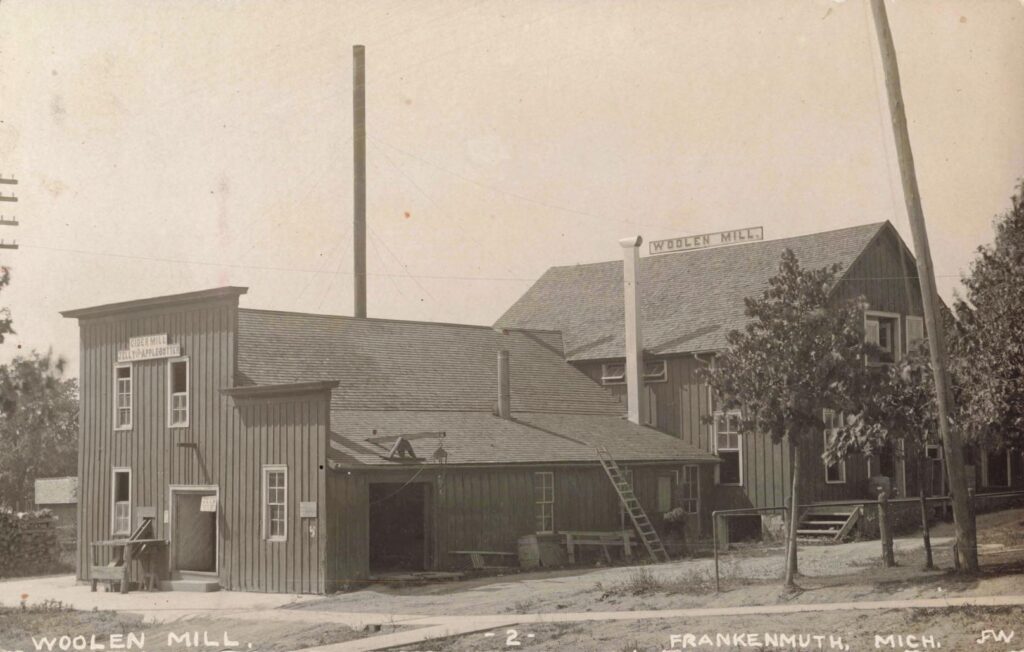
While tourism would later define the town’s economy, early Frankenmuth ran on mills. The Woolen Mill, with its adjacent Cider Mill, was one such operation. Smoke stacks, loading docks, and signage for apple butter suggest a thriving small industry.
The Frankenmuth Milling Company took full advantage of its location on the Cass River. One photo shows water crashing over the dam’s spillway, powering the grain mill that processed wheat from nearby farms. It was loud, wet work—but essential. Every bag of flour that left that building fed another Michigan household.
A Hotel That Became an Icon
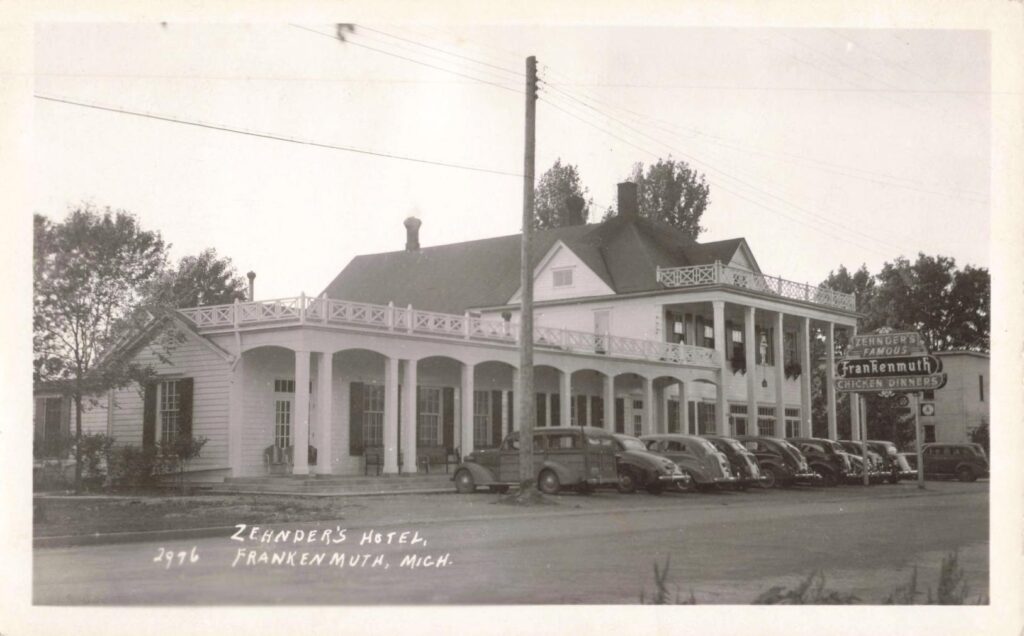
The last photo in this visual archive shows the Zehnder Hotel, standing tall with its neoclassical pillars and expansive porch. Today, Zehnder’s is a regional landmark known for its massive family-style meals. But here, it’s just another hotel in a working town. This snapshot captures the moment before fame—the architecture already ambitious, but the crowd still local.
Frankenmuth Before the Spotlight
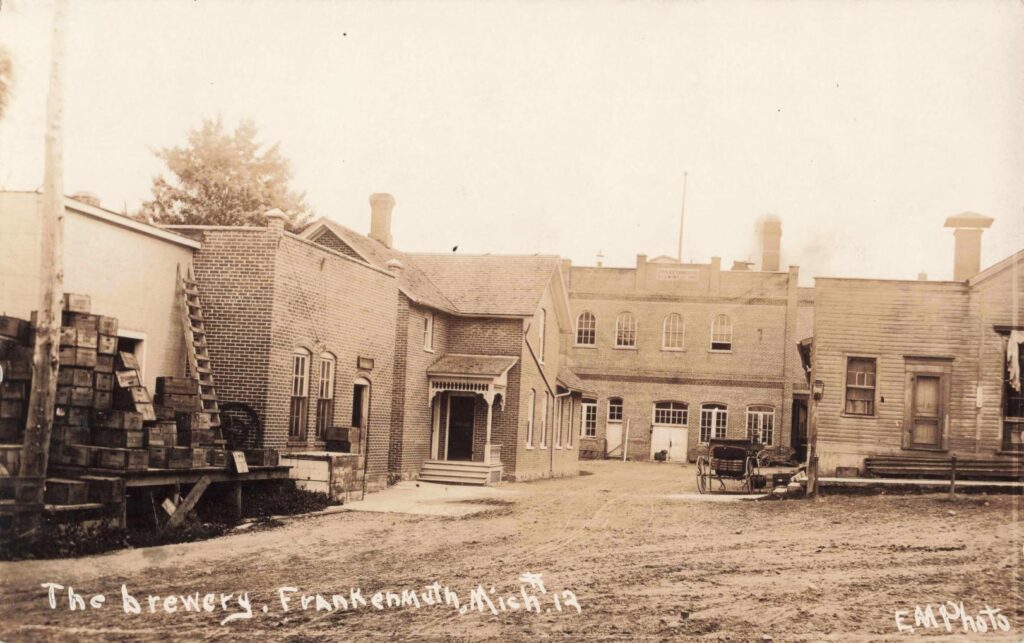
These 10 images tell a consistent story: Frankenmuth was a town that built what it needed, welcomed those passing through, and relied on each other. There’s no hint of the later crowds or commercialism. Instead, you see porch chairs, grain elevators, and store clerks.
As roads were paved and autos replaced horses, change came slowly—but surely. These photos freeze that in-between era, when Frankenmuth had yet to become a destination, and was simply trying to get by.
History of Frankenmuth Michigan is Ongoing
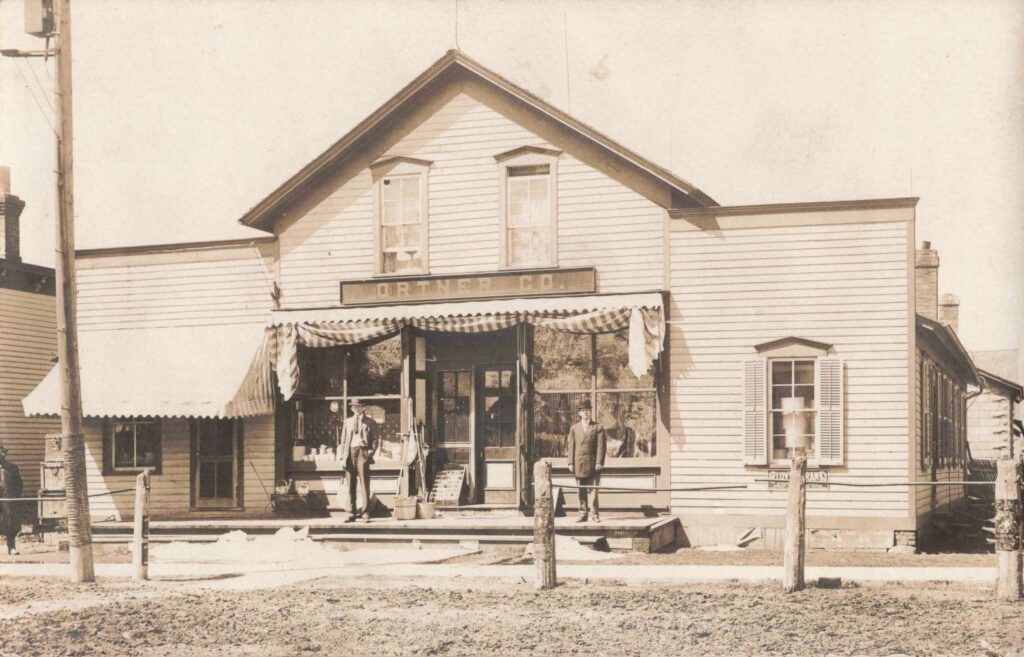
The word “Frankenmuth” today brings to mind Bavarian architecture and holiday lights. But its legacy was built long before that—by merchants, millers, hoteliers, and workers. The town’s roots lie in what these images capture: modesty, determination, and community.
These rare photographs serve not just as records, but as reminders of what shaped Michigan’s small towns. Frankenmuth, like many, stood on the strength of its people long before it stood out to visitors.

